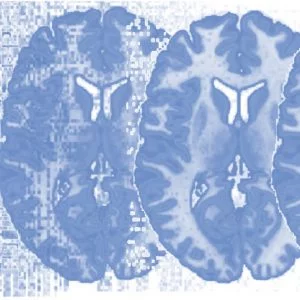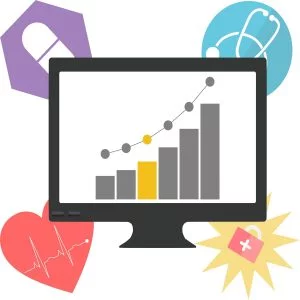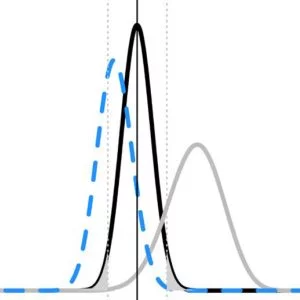
In the last decade, the amount of data available to organizations has reached unprecedented levels. Data is transforming business, social interactions, and the future of our society. In this course, you will learn how to use data and analytics to give an edge to your career and your life. We will examine real world examples of how analytics have been used to significantly improve a business or industry. These examples include Moneyball, eHarmony, the Framingham Heart Study, Twitter, IBM Watson, and Netflix. Through these examples and many more, we will teach you the following analytics methods: linear regression, logistic regression, trees, text analytics, clustering, visualization, and optimization. We will be using the statistical software R to build models and work with data. The contents of this course are essentially the same as those of the corresponding MIT class (The Analytics Edge). It is a challenging class, but it will enable you to apply analytics to real–world applications. The class will consist of lecture videos, which are broken into small pieces, usually between 4 and 8 minutes each. After each lecture piece, we will ask you a “quick question” to assess your understanding of the material. There will also be a recitation, in …
Instructor Details
Courses : 1
Specification: The Analytics Edge
|
33 reviews for The Analytics Edge
Add a review Cancel reply
This site uses Akismet to reduce spam. Learn how your comment data is processed.

| Price | Free |
|---|---|
| Provider | |
| Duration | 162.5 hours |
| Year | 2020 |
| Level | Intermediate |
| Language | English |
| Certificate | Yes |
| Quizzes | No |

FREE






Anonymous –
This class is challenging for me, but I have no previous experience with R and very limited experience with statistics. The teaching team does a good job of explaining the material and choosing interesting topics for each section.
Swap –
Very good pragmatic real learning experience, recommended for all the business analyst and students of statistics. Helps to learn the advance concepts of R very easily. Its best course from the MIT leaders.
Anonymous –
To me it’s just time consuming. Every week it’s 4 sets of assignments 20+ questions each. On some questions there is only one attempt. But I admit it is a VERY GOOD course for beginners.
Modeling (i.e linear regression, logistic regression etc.) are well explained by examples using R.
Anonymous –
This course that has given me a working understanding of R and the core statistical modeling techniques that you would find, for example, in James et al, "An Introduction to Statistical Learning". It is a very problem–oriented, hands–on course with a nontrivial workload, but in my experience so far, it has been very effective. The homework problems are very practical and illustrate the underlying statistical concepts very nicely in real–world settings.
Aswitala –
The best thing about that course was competition which provide us with real problem to solve using analytics. It was through Kaggle platform. Another good thing about that course was quite reasonable amount of statistical programming, however there was rather basic concepts.
Flavio Mariano Araujo Paes De Carvalho –
I’m changing my focus from Systems Analysis to Analytics. This course fulfilled its proposal and the Competition was a highlight. The data arrive already cleaned and treated, this is not the focus of the course. R basic and functional , it was also very good. The structure is balanced and would have had more content of Optimisation.
Life is Study –
MIT’s The Analytics Edge is an edX course focused on using statistical tools to gain insight about data and make predictions. The majority of the course teaches analytic methods using the R programming language, but the final 2 weeks deal with solving optimization problems using spreadsheet software (LibreOffice or MS Excel). The course runs 11 weeks and covers R basics, linear regression, logistic regression, decision trees, text analytics, clustering, visualizations and both linear and integer optimizations.
The Analytics Edge is a meaty course. It has a lot of content each week and it’s not easy to breeze through things like it is with many other MOOCs. There are graded quizzes after each video lecture and each week of new material has 4 fairly lengthy case studies to complete. One week is devoted to an analytics competition while the final week is reserved for a 4 part final exam. Some students on the forums claimed they were spending 10 to 15 hours a week on this course. Coming into the course with basic knowledge of statistics and R helps a lot. It should be noted, however, that this course is not too math intensive. It doesn’t spend a lot of time talking about formulas or nitty–gritty mathematical details; it mostly teaches you how to apply statistical functions and methods and interpret the results.
Anonymous –
Excellent introduction of real world analytics using R
Nim J –
This is one of the best online course available currently. This would give the right blend of R programming as well as the concepts of data science & machine learning. I’d definitely recommend this course to anyone who is interested in pursuing career in data science.
Anonymous –
The clarity of exposition in the videos is first class. The breadth of real–world applications is stunning. I do think the time required to complete the homeworks has been severely underestimated. One can spend a good half–hour writing code to get two – yes, two ! – marks out of, say 77. That’s crazy.
Anonymous –
So far I have completed several online courses and this is by far the best I have come across. It has inspired me to want to learn more about analytics. The course uses real world examples of how analytics have been used to gain a competitive edge. Examples range from election forecasting to discovering patterns for disease detection.
Ilya Rudyak –
If you’re like me prefer study by doing this course is for you. Endless problem sets – many of them based on real data – will definitely help you in this. You’ll get understanding of some most famous problems in data science (IBM Watson etc.) – just watch the first lecture to get an overview of them.
Probably the best part of the course is Kaggle competition – you’ll be able to understand the gap between guided problem sets and real–life situations. Don’t be discouraged if you can’ get in TOP from your first attempt. It’s not that easy.
This course is not about math. If you’re interested in some math background go to Stanford course on statistical learning.
Anonymous –
For the last two years, I have had at least two MOOCS each months. I love learning, and this course is one the best I have had the chance to stumble upon.
The content is extremely interesting, and the way it is organized makes it extremely easy to understand and follow.
Ronny De Winter –
One of the best MOOCs I ever followed (up to now completed more than 30).
Good combination of conceptional introduction and on hands experiments.
Lots of fascinating cases worked out with R.
Takes quite some effort to do all the lectures but it is very well worth it.
A must follow for anyone who wants to become a data scientist.
Anonymous –
One of the best and more thorough courses on data science. Covers the main topics of science data, and homeworks are quite didactical and almost real.
Thong Buu Tran –
This is one of the toughest and most enjoyable courses I have ever taken. You are expected to spend at least 10 hours a week to learn all the materials in this course.
Robert –
Note: There was not a session currently ongoing so I just watched the videos and completed most of the assignments.
This is a good course if you are looking to either learn some easy data analysis with R or the basics of different analytical tools. If you already have even a little programming background, you can probably coast through this course pretty easy but the knowledge is still worthwhile (I was able to complete what I wanted in about a week).
I am more of a practical learner so the real–world examples were infinitely useful in aiding understanding. The R walkthroughs were also well done and already helped me apply those concepts to my own independent analysis of other data sets.
Prasad G –
This course gives wonderful introduction to machine learning techniques. There are several case studies discussed as part of the course which give a good understanding of data analysis and application of various algorithms.
Sravya Madipalli –
One of the best Data science courses, you get to know tons of things with this course, great way to learn R and participate in Kaggle Data Science competition.
Robert Vangen –
I didn’t take this course for credit or certificate because I already have a MS in EE and an MBA, and I was taking other classes simultaneously. My goal was to “skim” the content for expansion in the future. However, the content and exercises were so well organized (most step–by–step) and relevant to real–world problems that I ended up spending lots of time understanding the material and writing lots of R code that I archived for future reference. The course wasn’t terribly difficult, but there was a lot of material. I skipped the optional lessons until I completed the course, but now I am going back and doing the optional lessons. I did the Kaggle competition and finished in the middle of the pack (in the lower 0.6xx accuracy). To get in the “leader” category (two in the 0.9xx accuracy) will require a lot of work and knowledge of R beyond what is covered by the course. If you want to be among the leaders, be prepared to do a lot of Web searches and searching R documentation. I learned a lot, but I’m still very humble and respectful of the experts.
Paolo Midali –
Lots of interesting subjects (regression, machine learning, optimization, …) with a practical hands–on approach.
I learned more than I expected, definitely a course to take.
Anonymous –
You might think twice about this course if all you have had is HS algebra and a smattering of statistics. I had a stats course (admittedly 40 years ago), an MS is Computer Science (also 40 years ago) and 35 years in IT and found this course challenging.
The following statement from MIT.Edx should be taken with a grain of salt.
You only need to know basic mathematics. For most people, this is equivalent to basic high school mathematics. You should know concepts like mean, standard deviation, and histograms. This course is also useful for those who already have experience in the subject. In each lecture, recitation, and homework assignment, we use a different dataset and case to illustrate the method. Even if you are familiar with all of the methods taught, you can still learn a lot from the different examples.
Anonymous –
A fantastic course to do for anyone interested in analytics!
I am a developer by trade with a strong background in maths and I loved the course.
Can be time consuming compared to alot of MOOCs but it worth the effort in the end to stick at it.
Dolly Ye –
Very useful class for data analysts.You learn a lot of cool R tricks and basic concepts,but if you are a student and not engaging in a data science project,it’s very easy to forget everything you have learned.
Joalbert Palacios –
Excellent course!! It is very well–structured with exercises and excellent explanation along the whole course. The objective are very well developed and explained in a way that is very comfortable to follow. For me, it is one of the best course I have ever taken.
Harshit Kumar –
It’s one of the best courses for introduction to data science including machine learning. The course is taught using R. I took Python courses before. I was thinking that it would be difficult for me to learn data science using R. But, it proved to be amazing. I learned so many things.
Jeanne –
The strength of this course is its broad selection of USE CASES compared to other data analysis MOOCs, some of which have a more technical focus. If you are interested in getting a taster of what analytics can do, willing to play with a bit of code but do not wish to spend much time cleaning data, this offering from MIT Sloane is worth investing in.
As a beginner to R, with little coding background I found the pace fine. I did need to spend a bit more than the suggested 10–15 hours / week to get though all the material, although you can be selective and only finish parts of the syllabus to complete the course. Some of the homework activities are not as well–constructed as others, this was probably to take into account the diverse student level. Community discussion was vibrant.
Erwin –
As a software engineer interested in ML techniques and algorithms, I did not enjoy this course. I had previously completed the popular coursera ML course by Andrew Ng which I enjoyed, and I was hoping in this course to both get familiar with R as well as get my hands dirty with real–world scenarios.
Unfortunately, this course was a painful approach to learning R and analytics, and I can’t help but feel that it could’ve been done much better. My complaints:
– R: Not much time spent familiarizing with the basics of R, and instead being thrown into the world of R analytic libraries, each library having its own arbitrary syntax and function parameters. I ended up really disliking R.
– A very poor way of teaching how to play with data. The student isn’t challenged to “figure out what to do next with this data” and is instead spoon–fed the next step, having only to reproduce the correct library/function/syntax from memory. Learning by repetition, not by deeper understanding.
– The step–by–step assignments are also designed such that you have enter the results of each step one at a time, in order to verify that you’re getting the right results, scoring micro–points along the way. Time–consuming and cannot be sped up. The weekly lecture videos can be watched in 1–2 hours, but the assignments/recitations take 8+ hours.
– A very poor presentation of the theory behind the techniques. Slides are presented and mostly simply read off of. I’m sorry but this course needs to find better teachers. A couple of the recitation TAs were pretty good though and I appreciated them more.
On the positive side, what I got out of the course:
– Some hands–on experience with real–world data analysis. Reality–check that most applications of data analysis don’t involve chinese boardgames and self–driving cars.
– Some familiarity with R, contrasting it with Octave/Matlab, and also realizing that there are libraries for everything.
Prashant Singh –
–I dropped this course.
–Course was good it teaches to analyze data using R.
–But I wanted to know how it works so enrolled in Machine Learning course on Coursera by Stanford.
Rich Kaplan –
Good course after getting basics in R especially. Brings a lot of things together.
Very time consuming but good and good help along the way.
Anonymous –
Quite demanding technically but the chosen examples were fascinating in themselves. As a result gaining a degree of technical competence with analytical data tools but also a variety of context how & where these new skills can be applied.
Ruilin Yang –
The reason I give only three stars is that––– well this scoring thing is purely personal, and personally, I don’t favor it too much because I like more technical stuff. As it is offered by the Business school of MIT, for me, taking it might be a wrong choice. But I wouldn’t be so certain about my tendency before taking it, so it offers a diagnostic value to me as well.
I finished this course around June, 2017. This course is a good choice for people who want to be more on the business side rather than the technical side.
* Technically it is nothing more than applying a bunch of R packages on data.
* But in terms of application, it offers a good variety of context of problems, they are real, authentic. And it comes with mountains of exercise.
For business people, I believe taking this course can be like empowering yourself with a new toolbox.
Bruno Bakula –
This is one of the best courses on the topic of Analytics/Data Science/Machine Learning that is out there. It is also one of the best MOOCs that I took. Its approach to the mentioned field is the “black box” approach. In other words, the course will not teach you how to build an ML model from scratch nor what is exactly being done in the background. However, it will teach you how to apply the already existing algorithms to analyze data and interpret your results. And, it will teach you that quite well.
For the majority of time, you will be dealing with Data Science/Machine Learning methods, but in the last two weeks you will learn about Mathematical Optimization as well. Each weekly assignment will consist of 2–3 cases in which you will apply the learned methods and derive results. And for me, here comes the best part of the course. For each case in the assignment, you are not just given a data–set and told to calculate something. Namely, you will not experience the situation: “Where do I even start ?” The case questions lead you progressively from understanding the data–set and answering basic questions, to answering advanced questions which shape the consequent, real–word decision (if you would be the one making it, of course).
Even though the course is great, it is wrong to think that you will become an expert in DS/ML just by finishing the course. However, I personally find it as a great source when entering the field, or even for enhancing your knowledge/skills. It is probably at an intermediate level in terms of difficulty. The work is being done in R for the DS/ML part, while the Math Optimization part is done in spreadsheet software (Excel, Libre Office, Open Office). The only downside that could be mentioned is that all the R exercise videos have been made in R Console and not the R Studio (and the video quality is not HD), but you can easily follow them using R Studio, what you should definitely do 🙂 At the end, I can highly recommend the course to all those who want to learn more about the amazing field of Analytics/Data Science/Machine Learning.